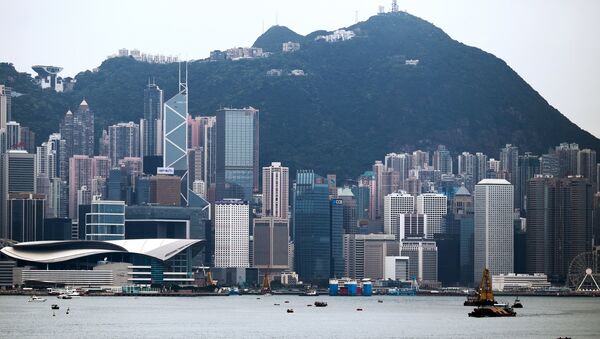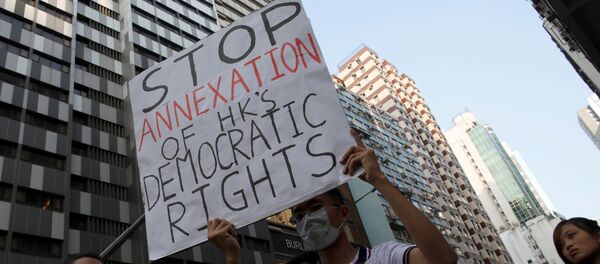“We will continue to stick to the principle ‘one country, two systems’ fully and comprehensively focusing on ensuring the high level of self-administration, under which Hong Kong’s residents rule in Hong Kong themselves,” Li said, adding that the calls for Hong Kong’s independence had no prospects.
In January, outgoing Hong Kong Chief Executive Leung Chung-hang said that the city is an "inalienable" part of China and will not become independent.
A political disagreement between Beijing and Hong Kong took place in 2014, when the Occupy Central campaign was launched in Hong Kong following Beijing's decision to vet candidates running in the special administrative region's 2017 chief executive election. Activists opposing the decision took to the streets demanding democratic elections. The protests lasted for 78 days and led to numerous arrests and clashes with the police.
China also opposes the idea of independence of Taiwan, PRC Premier of the State Council added.
“We will protect the principle of existence of one China, stick to the 1992 Consensus as a common political platform and protect state sovereignty and territorial integrity of China … We strongly oppose the separatist activities aimed at [creating] the so-called independent Taiwan and will take firm measures aimed at resisting such activities,” Li said at the annual session of the National People’s Congress (NPC).
He also said that China would ensure peace and stability in the Taiwan Strait.
In 1949, the Chinese Nationalist government was defeated by the Communists and had to flee from continental China to Taiwan, where it formed a separate government and declared itself to be the Republic of China.
Since then, relations between China and Taiwan have been strained, as China refuses to recognize Taiwan as a separate and independent political and diplomatic entity.
In 1992, representatives of mainland China and Taiwan reached a consensus on the “one China principle" implying that both mainland China and Taiwan are inalienable parts of the one single Chinese state.





